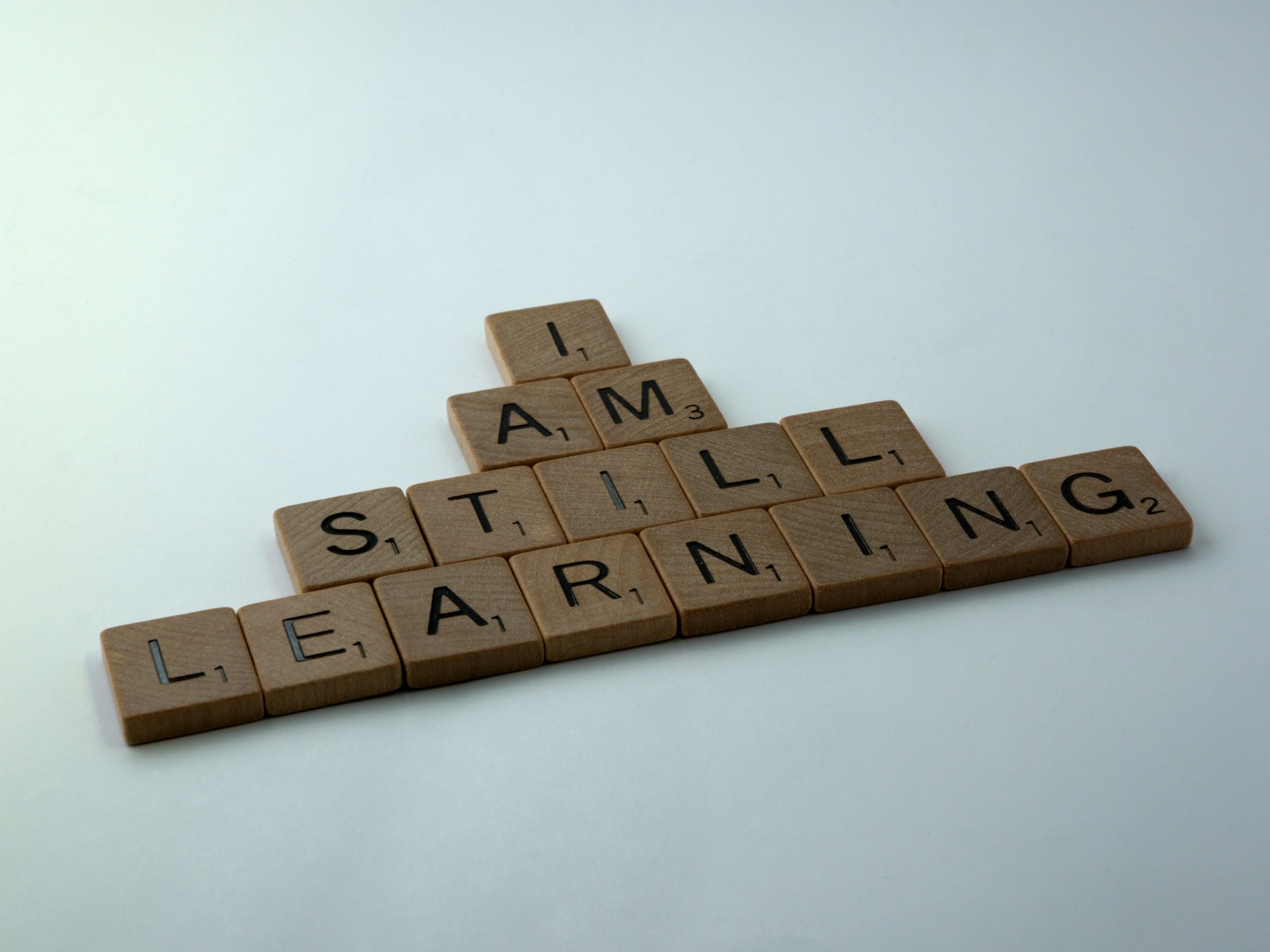Unlocking Professional Growth: A Comprehensive Guide to Online Learning Communities for Teachers

Photo by Katie Franklin on Unsplash
Introduction: Why Online Learning Communities Matter for Teachers
The teaching profession is evolving rapidly, with new challenges, technologies, and pedagogical approaches emerging every year. In this landscape, online learning communities have become essential resources for educators seeking continuous professional growth, support, and collaboration. These platforms unite teachers from around the world, enabling them to share expertise, access innovative resources, and build lasting professional relationships. This article provides a detailed roadmap for educators looking to participate in, and benefit from, online learning communities-covering where to find them, how to get started, and what to expect along the way.
The Benefits of Online Learning Communities for Teachers
Online learning communities offer educators a range of tangible and intangible advantages. The most significant benefits include:
- Continuous Professional Development: Teachers can access webinars, courses, and collaborative forums on the latest educational trends, assessment strategies, and classroom technologies [3] .
- Peer Collaboration: Educators can connect with colleagues worldwide, sharing lesson plans, troubleshooting classroom challenges, and exchanging best practices [5] .
- Resource Sharing: Many communities maintain libraries of teaching materials, templates, and digital tools to enhance instruction [1] .
- Emotional Support: Teaching can be isolating. Online communities provide a safe space to vent, seek advice, and celebrate successes with peers who understand the unique pressures of the profession [1] .
These benefits collectively foster a sense of belonging, encourage lifelong learning, and help teachers stay agile in a fast-changing educational landscape.
Notable Online Learning Communities for Teachers
There is no shortage of online platforms catering to teachers. Below are some of the most widely recognized and accessible communities:
1. edWeb
edWeb is a free professional online community offering networking, resource sharing, and live or on-demand webinars. Educators can join subject-specific groups, participate in collaborative discussions, and earn continuing education (CE) certificates for their engagement. The platform is especially valued for its extensive library of over 3,000 recorded webinars and the ability to tailor professional learning communities (PLCs) for individual schools or districts. To join, educators simply need to register on the official website and select the topics or communities that fit their interests. Participation is free, and you can engage at your own pace [3] .
2. Reddit Communities
Platforms like r/Teachers , r/Professors , and r/ELAteachers are vibrant forums where educators share experiences, seek advice, and discuss everything from curriculum design to classroom management. Each subreddit is moderated and welcomes both seasoned teachers and newcomers. New users can create a Reddit account and subscribe to these communities to start reading, posting, or commenting. These forums are free to use and open to all [1] .
3. edTech-Focused Professional Communities
Numerous edtech companies host dedicated online communities for teachers interested in using digital tools:
- Canva for Teachers Community: Offers a global platform for educators to exchange teaching materials, discover new features, and even monetize their contributions as Canva Creators. Access is available through the Canva for Education section on the official Canva website [2] .
- Curipod Teacher Community: Curipod manages a private Facebook group and an active online blog where teachers can share strategies and collaborate on lesson creation. To join, teachers can search for the Curipod Teacher Community group on Facebook or visit Curipod’s website for more details [2] .
- Other platforms such as Kahoot!, Quizizz, Quizlet, and Scratch also have dedicated teacher communities, often accessible via their official websites or teacher resource pages [2] .
Before joining any community, educators are encouraged to visit the official websites or search for the specific company’s teacher community in reputable directories or social media channels.

Photo by Samantha Borges on Unsplash
How to Join and Participate in Online Teacher Communities
Becoming a member of an online learning community is typically straightforward, but the steps may vary by platform:
- Identify Your Needs: Reflect on your professional goals. Are you seeking subject-specific advice, general teaching strategies, or support with digital tools?
- Select a Platform: Review the options above. Visit the official websites, check community guidelines, and determine which platform matches your interests and comfort level.
- Register or Apply: Most communities require a simple signup process. For example, edWeb requires email registration, while Reddit communities require a Reddit account. Facebook-based groups may require you to answer a few questions to join.
- Participate Actively: Start by browsing existing discussions and resources. Introduce yourself, ask questions, or share your own experiences and resources.
- Engage Respectfully: Follow community norms, contribute constructively, and be mindful of privacy and confidentiality.
Active participation increases the value you receive from the community and helps build your professional reputation.
Case Studies: Real-World Impact of Online Communities
Consider the example of a high school teacher who, after joining edWeb, discovered a series of webinars on blended learning that transformed her classroom approach. By participating in live Q&A sessions, she gained actionable insights and built connections with educators facing similar challenges. Another case is a new teacher who joined r/Teachers on Reddit, where they found not only lesson ideas but moral support during a challenging first year. These platforms often become ongoing sources of inspiration, providing access to mentors and peer learning networks that extend far beyond traditional in-person workshops [3] [1] .
Step-by-Step Guide to Accessing Online Learning Communities
For educators ready to join an online community, here’s a practical roadmap:
- Research available platforms using search terms such as “teacher online community,” “professional learning network for educators,” or “subject-specific teacher forums.”
- Visit official websites like edWeb or the websites of major edtech companies (such as Canva for Education or Quizizz for Teachers).
- Look for sign-up or registration buttons, typically located in the main navigation or footer of the homepage.
- Fill out the required information, which usually includes your name, email address, and sometimes your school affiliation.
- Verify your email and log in to the platform. Take a tour of the available resources, groups, or forums.
- Consider joining more than one community to maximize exposure to diverse perspectives and resources.
If you prefer communities built around specific interests or tools, try searching for ”
subject + teacher online community
” or ”
tool name + educator forum
” on your preferred search engine or within social media channels.
Common Challenges and Solutions
While online learning communities offer immense value, some teachers encounter challenges such as information overload, lack of time, or uncertainty about where to start. Solutions include:
- Set Clear Goals: Decide in advance what you want to achieve-whether it’s earning a certificate, finding lesson ideas, or connecting with peers.
- Schedule Regular Participation: Allocate a specific time each week for community engagement.
- Use Platform Tools: Many platforms allow users to bookmark favorite threads, set up notifications, or follow specific topics for easier navigation.
- Start Small: Begin by joining one or two communities, gradually increasing involvement as you become comfortable.
For those seeking more formal professional development, many platforms offer online courses with certificates of completion. For example, Coursera’s “Learning to Teach Online” course is provided by the University of New South Wales and can be audited for free [4] . Google Classroom tutorials are available on Skillshare, often free for new users [4] . Always verify course details and costs before enrolling.
Alternative Approaches and Additional Resources
If you prefer not to join formal communities, there are alternative methods to connect and grow:
- Hashtag Campaigns on X (formerly Twitter): Many teachers participate in ongoing discussions using hashtags like #edchat, #teacherlife, or #edtech to connect informally with peers worldwide.
- School or District PLCs: Some educators create private online groups for their school or district, using platforms like Google Classroom, Microsoft Teams, or dedicated forums.
- Moodle, Edmodo, and Other Learning Management Systems (LMS): These platforms often have built-in community features where teachers can collaborate within or across schools.
To find more options, search for your subject or specialty along with “online educator community” or consult your school’s professional development coordinator for recommendations.
Key Takeaways
Online learning communities are powerful tools for teachers seeking professional growth, collaboration, and support. By taking advantage of these networks, educators can access a wealth of resources, participate in meaningful discussions, and stay at the forefront of educational innovation. Whether you are a new teacher or a seasoned educator, joining an online community could be the most impactful step you take to enhance your teaching journey.
References
- [1] Owl Labs (2024). Best Online Communities for Hybrid Teachers.
- [2] Tech & Learning (2024). 6 Online Edtech Professional Learning Communities & Resources for Teachers.
- [3] edWeb (2024). A professional online community for educators.
- [4] Teachers of Tomorrow (2025). 10 Best Online Courses for Teachers.
- [5] Edutopia (2024). Collaborative Online Continuing Education: Professional Learning Communities for Teachers.
MORE FROM snapflicks.net













